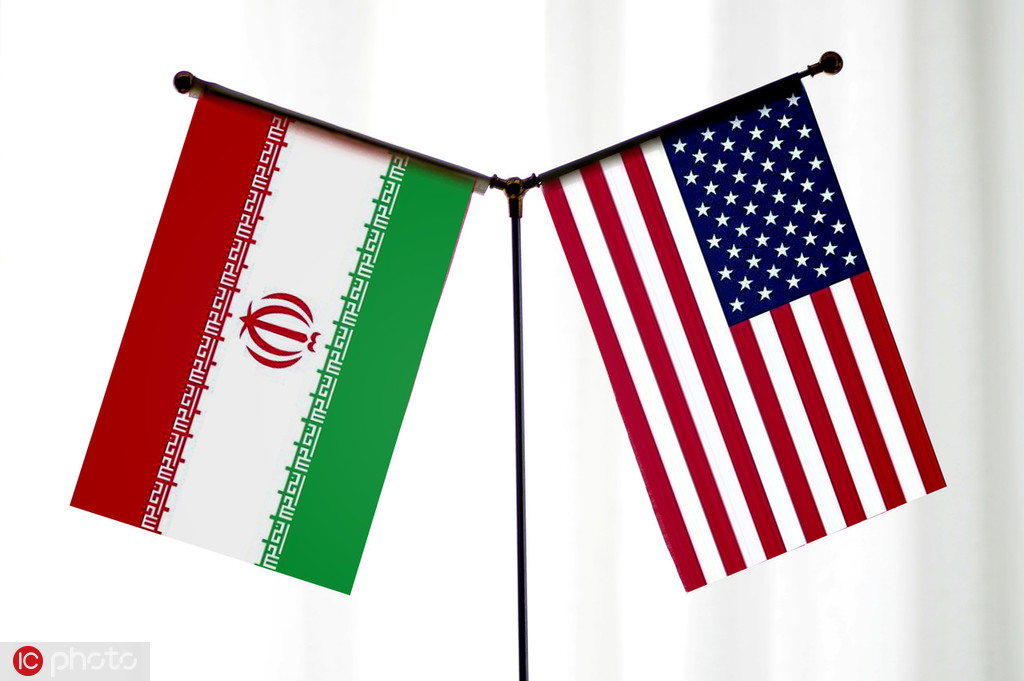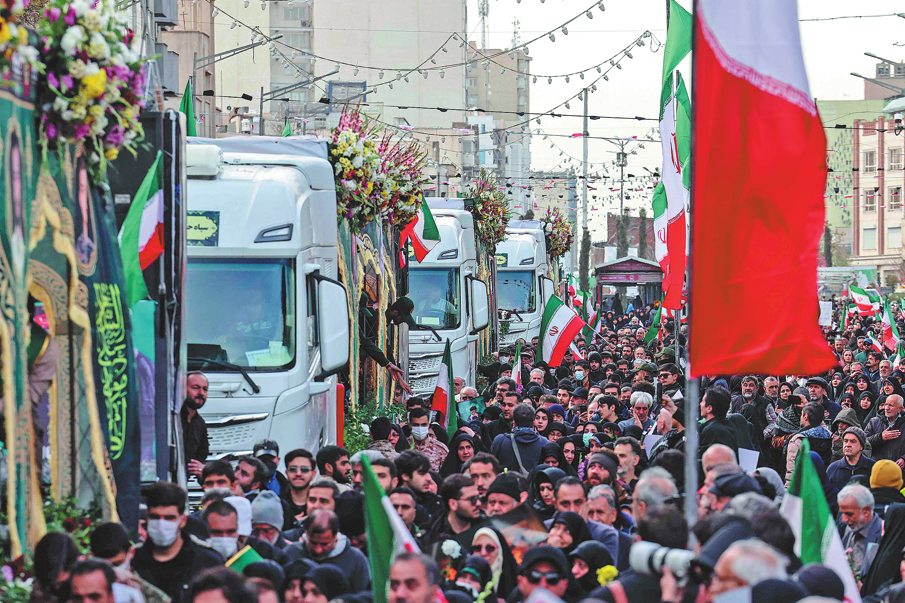Containment cannot solve Iran crisis


Teheran would return to landmark 2015 nuclear agreement for $15b in oil sales
WASHINGTON - As tension continues to escalate between Washington and Teheran, the two sides are closer to a military conflict than any other time in recent years, a sanctions expert in the United States has said.
The crisis, which was precipitated by the current US administration, should be addressed diplomatically rather than through containment, Richard Nephew, a senior research scholar at New York's Columbia University, said recently in an e-mail interview.
Nephew had served as the lead sanctions expert for the US team negotiating the landmark 2015 Iran nuclear deal.
After the US withdrew from the nuclear pact in 2018, its economic sanctions on Iran have severely crippled the Iranian economy and peace and stability in the Middle East region have been further jolted, he said.
On Tuesday, the US blacklisted Iran's space agencies, the latest move to curb Iran's nuclear-related program.
Since May, multiple incidents have occurred in the Persian Gulf region arising from US-Iran antagonism, including attacks on oil vessels and seizure of oil tankers by Iran and Britain. Washington has sent a carrier strike force and additional troops to the region along with continuous pressure on Iran through sanctions.
"Tensions are certainly high and getting higher," Nephew said in the interview.
"Iran's nuclear program is once again expanding in problematic ways and there is a greater threat of a conflict in the Persian Gulf than a few months or years ago," said the expert, who is also the author of The Art of Sanctions, a book published in 2017.
One year after the Washington ditched the deal, Teheran announced in May that it would gradually reduce its commitments under the pact. It has sparked worries about a possible war in the Middle East.
"'War' is a loaded term. I do not know whether we're close to an actual, sustained war," said Nephew.
"But a military conflict in which US and Iranian military forces fire on one another and people die seems far more possible now than at any time in the recent years," he said.
Asked about who should be blamed for the current deteriorating situation, Nephew said the standoff has its roots in the US' widely criticized withdrawal from the accord, which softened economic sanctions on Iran in exchange for a suspension of the country's nuclear development.
"I think the US holds substantial responsibility for its refusal to negotiate seriously with Iran; Iran has responsibility for refusing to see how its policy decisions in the past and present contribute to the US hostility," Nephew said.
"The US can certainly do much to contain Iran. But, Iran has ways of responding asymmetrically," he added.
Diplomatic approach
Containment will not itself solve our problems with Iran," and only a diplomatic approach can," he said.
"The two sides should stop doing what they're doing and restart a serious negotiating process. This is not complicated," he added.
Meanwhile, a senior Iranian official confirmed on Wednesday that Teheran would return to its nuclear deal commitment only if it got $15 billion for oil sales over four months, as stipulated in a draft French plan to salvage the accord, the Fars news agency reported.
France has proposed offering Iran about $15 billion in credit lines until year-end if Teheran comes fully back into compliance with its 2015 nuclear deal, a move that hinges on Washington not blocking it.
"Our return to the full implementation of the nuclear accord is subject to the receipt of $15 billion over a four-month period, otherwise the process of reducing Iran's commitments will continue," Fars quoted Iranian Deputy Foreign Minister Abbas Araqchi as saying.
"Either Europe has to buy oil from Iran or provide Iran with the equivalent of selling oil as a credit line guaranteed by Iran's oil revenues, which in some sense means a presale of oil," Araqchi added.
But Araqchi said there were still "serious disagreements on the agenda" of any future talks between Iran and its nuclear deal partners.
Xinhua - Agencies
































